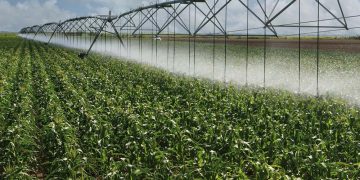
Agribank is moving towards a new business model that places innovation, inclusivity and relevance at the centre of its operations, with a particular focus on improving access to finance for communal farmers.
Chief Executive Officer Raphael Karuaihe said the revised approach is intended to ensure the bank’s products and services are better aligned with the evolving needs of the agricultural sector.
“This strategic shift is intended to make financing more accessible, relevant, and impactful across all segments of agriculture, especially for communal farmers,” Karuaihe said.
The remarks follow a recent familiarisation visit to the Kavango East and Kavango West regions by Karuaihe and Agribank Board Chairperson, Josephat Mwatotele.
The mission aimed to engage stakeholders and assess opportunities to unlock agricultural potential in the two regions.
As part of the visit, the delegation held meetings with the Governors of both regions, interacted with farmers, visited regional offices of the Ministry of Agriculture, Fisheries, Water and Land Reform, and toured selected Green Scheme projects.
Mwatotele said the visit was in line with Agribank’s commitment to gaining a better understanding of conditions on the ground, particularly in light of climate change and shifting agricultural demands.
He outlined five key foundations for successful farming ventures: land, capital, active ownership, technical knowledge and access to markets.
He stressed the need for farmers to be well organised and supported in order to make communal farming more attractive to investors.
“Satisfying these elements requires coordinated efforts. When farmers are organised, capacitated, and risks are shared by players across the value chain, it becomes easier to mobilise and channel capital to communal agriculture projects,” Mwatotele said.
Governor of Kavango West, Verna Sinimbo, used the opportunity to urge Agribank to tailor its support to better serve smallholder and emerging horticulture farmers.
She said such targeted efforts would contribute to the region’s broader development goals.
“This will support our region’s development goal of promoting horticulture for economic growth, food security and employment creation,” Sinimbo said.













